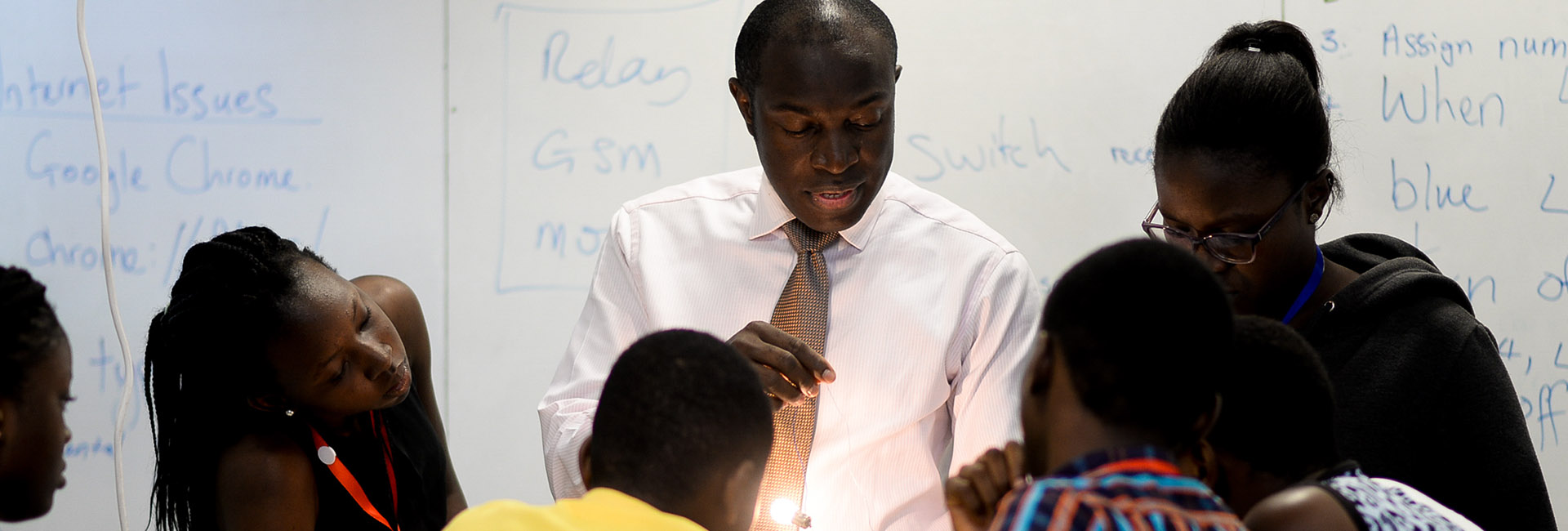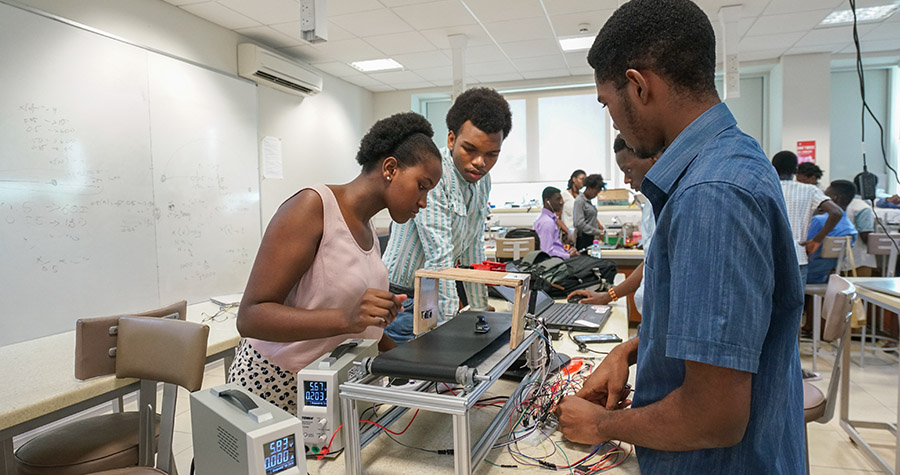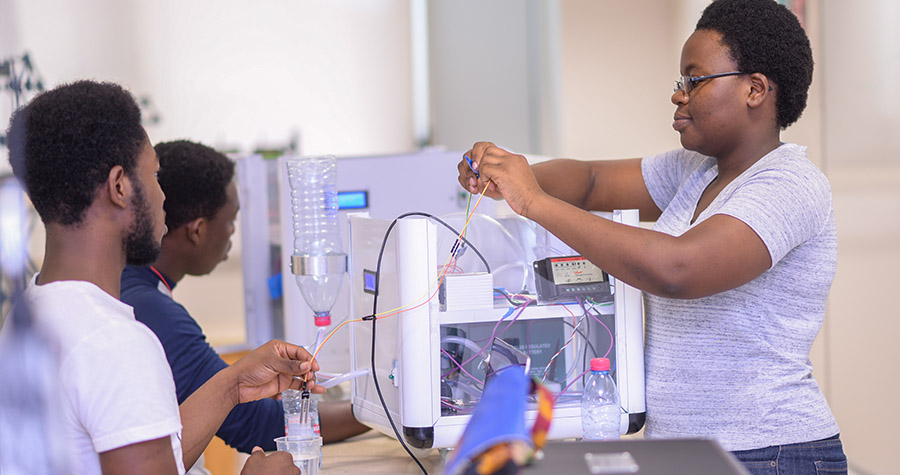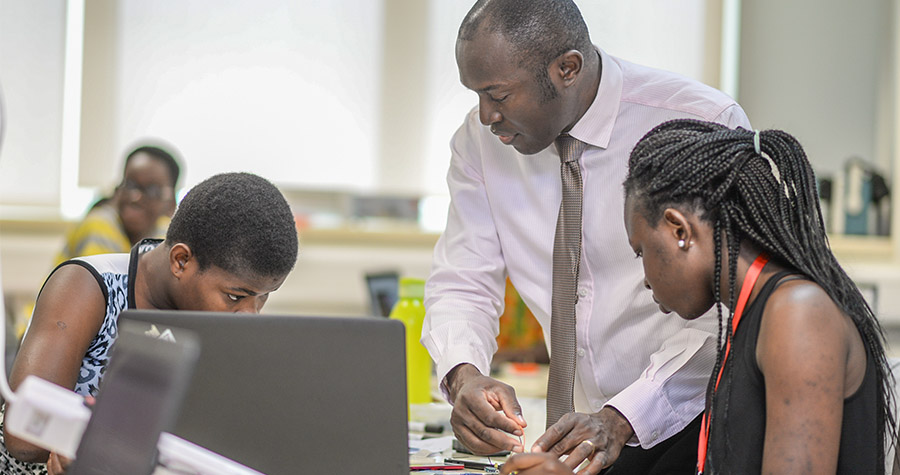 September 9, 2018
September 9, 2018
Launched in 2015, Ashesi’s Engineering program was designed to give students the breadth and expertise they need to devise innovative solutions and improve existing systems. Adapting our curriculum models from several leading liberal arts and Engineering institutions, Ashesi’s engineering department employs a multidisciplinary approach that educates engineers in best-practices, and in designing innovative infrastructure and products with a focus on the developing world.
“We need more entrepreneurs who are engineers, and our curriculum shapes students into becoming entrepreneurial leaders in many fields,” said Dr. Nathan Amanquah, Acting Dean in the Faculty of Engineering. “In industry, engineers build systems for various sectors and work with people from different backgrounds. Replicating the real world in our engineering program, we expose our students to a wide range of courses beyond their core discipline such as economics, environmental science, business, and humanities, to enable them to understand the world from different perspectives. They also become aware of the different things people are interested in and the challenges they face in pursuing these interests. This knowledge equips them with the tools to develop useful solutions rather than assuming what might be a good solution for others when they might actually not need it.”

Ashesi’s engineering program uniquely carries a strong emphasis on projects and hands-on activity. By giving students the opportunity to explore courses in different fields, the students have the opportunity to learn to apply engineering knowledge in multiple situations.
“The challenge we have in Ghana with a lot of the engineering programs is that students study more design and theory as compared to actually build the prototypes,” explained Dr. Amanquah. “However, at Ashesi, we teach our engineering students to be adept in design and theory, as well as operating with their hands so that if there is a problem, they can fix it. For example, an engineering student taking a course in popular music and dance may perform signal processing on music that is produced to make it sound better.”

By emphasizing design thinking, problem solving and entrepreneurship, our students are also taught how to turn their ideas into sustainable businesses, while creating pragmatic solutions and adapting existing technology for an African context.

“In developing projects for the students, we explore systems that are relevant to the current economy,” Dr. Amanquah explained. “For example, in our first year running the engineering program, we tasked our students with building a solar generator as a way to mitigate Ghana’s energy crisis at the time. Subsequent projects included a smart irrigation system for agriculture and a robotic arm in conjunction with a conveyor belt. Moreover, with all projects, students are expected to fabricate the body of the product, the electronics as well as any programming that might be required.”
Share this story
